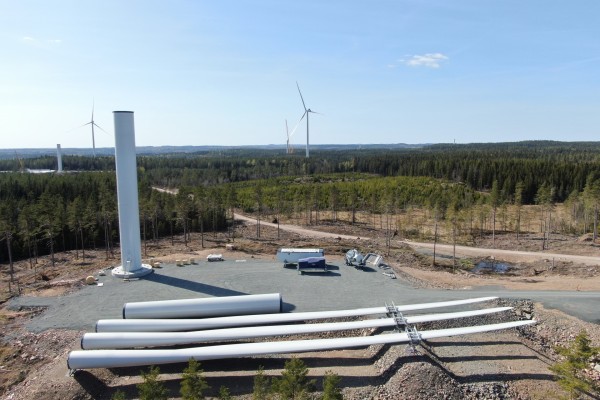Getting the most out of your Energy Transition Investments

What is the energy transition? As an investment theme, it is investment in decarbonisation: from renewables, battery storage and hydrogen, through to grid capacity, or electrification of transportation or heavy industry manufacturing, for example. Clean, decarbonised energy assets are at the heart of the energy transition and in investment terms make up the most significant portion of the sub-sector. This creates attractive opportunities for institutional investors with private capital to put to use; but in a crowded marketplace of private capital funds, what should investors look for?
If investors are serious about purpose-driven investment — making headway against net zero targets — then the primary consideration should be investing in additionality: creating new renewables assets, so that fossil fuel power plants can be taken off the grid. Look beyond just the opportunities in operational assets: while they certainly deliver stable, robust income, and have an important place in any renewables portfolio, there are opportunities for additionality in assets which are under development or construction. In practice this means searching for a specialist asset manager — one who can develop, build and operate assets.
Develop, build, operate
In fact, a specialist energy transition asset manager is more likely to have the unique combination of knowledge and skills to optimise the performance of assets: this holds true even if you only intend to invest in operational assets. Ultimately, investors are looking for a partner who can deliver more value from their operational assets. For example, you should ask your asset manager about their capability to agree short and long term power price agreements, and lock in that value. Or in a wind portfolio: does your asset manager have the capability to understand where turbines might be optimised into producing more power, for instance through correcting yaw misalignment? Is there someone on the team with experience in obtaining planning permission to repower older wind turbines?
Investing at the development stage, meanwhile, creates more of these opportunities to add both value and additionality, but with higher risk-adjusted returns. This reflects the varying planning requirements across jurisdictions – and the expertise needed to understand and navigate them. It also comes down to whether a manager has the ability to make a proper assessment of the energy resource and optimise accordingly. The same is true of grid connections. An exceptional manager will understand the varying requirements of planning and grid, as well as possessing the ability to engage empathetically with communities.
As for the construction stage, managers should demonstrate the ability to complete projects on budget and on time, as well as managing supply chains and complex contracts, and innovating when faced with the inevitable challenges to the build programme. If there is a delay in the supply chain, is the manager experienced enough to redesign the project? Do they understand the build process enough to provide comfort over the quality assurance of the project’s construction?
This wide-ranging, technical set of skills isn’t merely nice-to-have: it’s the difference between a good investment and a great investment. Institutional investors can discover this about any asset managers they are considering going into business with, by looking for those with a strong track record and the specialist skills required.
Finding specialist energy transition asset managers with inhouse skills
Fundamentally, investors should consider whether they are going into business with an asset manager who has the inhouse expertise to directly manage the assets on your behalf at each of the development, construction and operational lifecycle stages.
A good energy transition investment fund will follow some common-sense principles, offering reliable, stable returns through the diversified location of assets and diversified points at the development cycle, from the development stage through to commercial operation. Elevating a fund’s activity to excellent, and market-leading, requires an in-depth understanding of the assets themselves, their jurisdictions, and the unique challenges that every project faces.